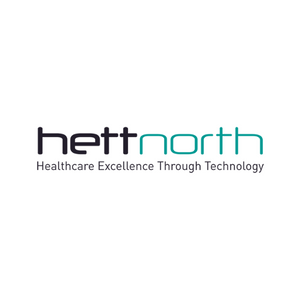In the ever-evolving landscape of healthcare, Integrated Care Systems (ICS) have emerged as a pivotal force, transforming the way healthcare services are delivered and managed. These systems break down silos, fostering collaboration among healthcare providers and promoting a more seamless and patient-centric approach. In this blog, we explore eight key benefits of Integrated Care Systems in the United Kingdom, highlighting how they unlock the power to enhance healthcare outcomes.
Key Benefits of Integrated of Integrated Care System
1. Holistic Patient-Centric Care
Integrated Care Systems prioritise a holistic approach to patient care, breaking down traditional barriers between primary, secondary, and social care. By connecting various components of the healthcare ecosystem, ICS ensures that patients receive comprehensive, coordinated, and patient-centric care. This approach is particularly valuable for individuals with complex health needs who may require support from multiple healthcare providers.
2. Improved Care Coordination
One of the fundamental advantages of Integrated Care Systems is the enhanced coordination of care. With seamless information sharing between healthcare professionals, there is a more accurate and up-to-date understanding of a patient's health status. This streamlined communication results in better-informed decisions, reduced duplication of tests and services, and ultimately, improved overall healthcare outcomes.
3. Enhanced Population Health Management
Integrated Care Systems enable healthcare providers to adopt a proactive approach to population health management. By analysing data across different care settings, ICS can identify trends, risks, and opportunities for preventative interventions. This data-driven approach allows healthcare professionals to address health issues at the population level, reducing the incidence of diseases and improving the overall health of communities.
4. Efficient Resource Utilisation
Integrated Care Systems contribute to the efficient utilisation of healthcare resources. Through improved coordination and communication, redundancies in services are minimised, and resources are allocated more effectively. This not only enhances the quality of care but also optimises the use of financial and human resources, resulting in a more sustainable and resilient healthcare system.
5. Seamless Information Sharing
Information silos have long been a challenge in healthcare, leading to fragmented and inefficient care delivery. Integrated Care Systems address this issue by facilitating seamless information sharing between healthcare providers. This interoperability ensures that relevant patient information is readily available, leading to quicker and more informed decision-making.
6. Patient Empowerment Through Shared Decision-Making
Integrated Care Systems empower patients by involving them in shared decision-making processes. With access to their health records and the ability to participate in care planning, patients become active partners in their healthcare journey. This collaborative approach fosters a sense of ownership over one's health and improves treatment adherence.
7. Greater Accountability and Transparency
ICS introduces greater accountability and transparency into the healthcare system. By aligning incentives and responsibilities across different care providers, there is a collective commitment to achieving positive patient outcomes. This shared accountability ensures that all stakeholders work collaboratively towards common goals, fostering a culture of transparency and continuous improvement.
8. Enhanced Preparedness for Public Health Challenges
Integrated Care Systems provide a framework for enhanced preparedness in the face of public health challenges. The ability to coordinate responses across different care settings enables a more robust and unified approach to managing health crises. Whether dealing with infectious diseases, pandemics, or other emergencies, ICS ensures a coordinated and efficient response to protect public health.
Looking to the Future of Healthcare
Integrated Care Systems stand as a cornerstone for the future of healthcare in the United Kingdom. The benefits outlined above underscore the transformative potential of these systems in delivering higher quality, more accessible, and patient-centered care. As the healthcare landscape continues to evolve, embracing the power of Integrated Care Systems is not just a strategic choice; it is a commitment to a future where collaboration, efficiency, and patient satisfaction take center stage.
In unlocking the power of Integrated Care Systems, the UK is poised to create a healthcare ecosystem that is not only responsive to the diverse needs of its population but is also resilient in the face of emerging challenges. The journey towards integrated care is a journey towards a healthier and more connected future for healthcare in the United Kingdom.
Find out More about the Benefits of Integrated Care at HETT North
Join us on 28th February in Manchester to find out more about the key benefits of integrated care.
Register for your FREE pass now to enjoy:
- 40+ hours of CPD-accredited content across 6 content streams
- 100+ innovative suppliers
- 1-2-1 meeting opportunities with over 1,400 like-minded peers
- 100+ expert speakers including Jenny Chong, Masood Ahmed & Natasha Phillips
%20(1).png?width=500&height=58&name=HETT%20insights%20logo%20RGB-04%20(1)%20(1).png)


